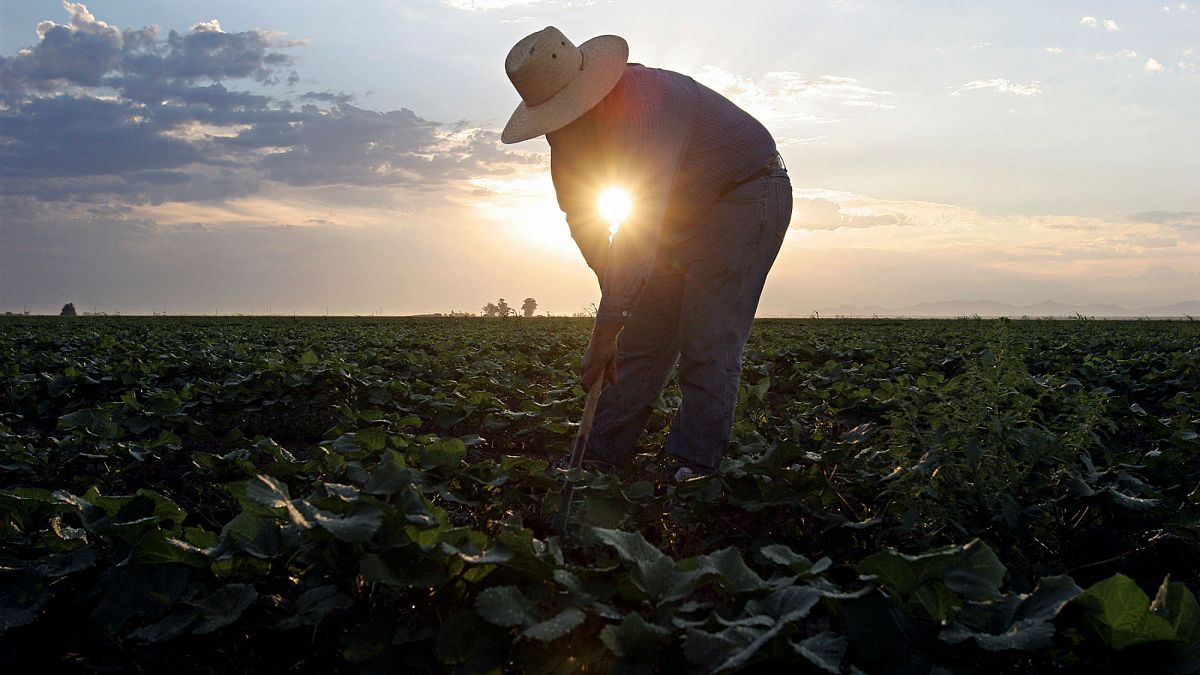The ongoing debate over the safety of glyphosate is becoming a thorn in the side of the European Food Safety Agency.
The debate over the safety of the world’s most popular weed killer rages on, and it’s becoming a thorn in the side of the European Food Safety Agency (EFSA).
Members of the European Parliament this week raised questions about EFSA’s finding that glyphosate, the main ingredient in Monsanto’s Roundup, is unlikely to cause cancer. The EU marketing authorisation of the herbicide is set to expire at the end of the year, and a decision over whether to extend it is pending.
During the plenary session in Brussels on Tuesday (June 13), lawmakers left and right complained that some of the studies used by the agency to make up its mind were commissioned by the chemical industry – the companies selling the herbicides in the first place.
.
EFSA_EU</a> defends <a href="https://twitter.com/hashtag/independence?src=hash">#independence</a> as new data shows 46% of experts have conflicts of interest <a href="https://t.co/SRPS3pD3QN">https://t.co/SRPS3pD3QN</a> <a href="https://t.co/RqQ8bdSpP3">pic.twitter.com/RqQ8bdSpP3</a></p>— FoodNavigator.com (FoodNavigator) June 14, 2017
Also this week, an NGO calling for greater corporate transparency issued new research claiming that nearly half – 46 percent – of EFSA’s experts had financial conflicts of interest with the agribusiness and food industries.
EFSA called the figures misleading and said it had been diligent in its review of glyphosate. EU Commissioner for Health and Food Safety Vytenis Andriukaitis, facing MEPs’ questions, defended the agency’s position.
‘Fake transparency’
EFSA’s assessment is at odds with the findings of the International Agency for Research on Cancer, which labeled glyphosate a “probable carcinogen”.
“European agencies, in their assessments, tend to only focus on studies commissioned by the pesticides industry… and these studies are not made public,” said Suzanne Dalle, campaign manager for Greenpeace.
Health advocates and Green lawmakers have made clear their frustration over the lack of transparency and demanded access to all of the studies used in EFSA’s assessment.
MEPs go to court in bid to reform #EFSAhttps://t.co/zAQtyeZGhq#glyphosate#gmopic.twitter.com/lU5iKYOLwz
— GMWatch (@GMWatch) June 4, 2017
Political storm
IARC’s classification in March 2015 sparked a political storm over whether to re-license or ban sales across the European Union of pesticides containing glyphosate. A decision has yet to be reached, but in the meantime, some countries including France have tightened restrictions on the use of glyphosate in public parks and private gardens.
Given the conflicting reviews, lawmakers and NGOs say there is too much uncertainty around the safety of glyphosate, and the precautionary principle should apply.
Nearly 1 million people have signed a European Citizens’ Initiative titled “Stop glyphosate”. The goal is to collect at least one million signatures from Europeans and submit the petition before the Commission’s next move to renew, withdraw or extend the EU licence of glyphosate.
Under EU rules, if the petition receives one million validated signatures from at least seven member states, the Commission must consider it and justify its choice to act upon it or not.
We’re 908,000. We need to be a million to stop the weedkiller Glyphosate. Sign now. https://t.co/wHnExkKiL4
— Judith Blasdale (@pepperygold) June 14, 2017
The key facts
- Environmental groups have been calling for a ban on glyphosate after the International Agency for Research on Cancer (IARC), a semi-autonomous part of the World Health Organisation, said in March 2015 that glyphosate was “probably carcinogenic to humans”.
- The European Food Safety Authority (EFSA) for its part said in November 2015 that glyphosate was unlikely to cause cancer in humans. However, it suggested setting higher limits on the amount of residue of the weed killer deemed safe for humans to consume.
- EFSA’s conclusion was expected to pave the way for the European Union to renew its marketing authorisation for glyphosate, which Monsanto uses in its best-selling weed killer Roundup. A decision is still pending.
